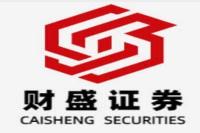ABB Ditches Northvolt: A Deep Dive into the Shifting Sands of the EV Battery Landscape
Meta Description: ABB's decision to forgo further investment in Northvolt sends shockwaves through the EV battery industry. Explore the strategic implications, market analysis, and future predictions for both companies and the broader landscape. #ABB #Northvolt #EVBatteries #ElectricVehicle #Investment #EnergyStorage #BatteryTechnology #AutomotiveIndustry
The whispers started circulating last week, then the murmurs grew into a roar. ABB, a titan of industrial automation and power grids, has decided against further investment in Northvolt, the Swedish battery-maker aiming to disrupt the global electric vehicle (EV) market. This isn't just a minor adjustment in a corporate portfolio; it's a seismic event with far-reaching consequences for the burgeoning EV industry, impacting everything from supply chains and geopolitical strategies to the very future of sustainable transportation. Forget the bland press releases; this is a story of ambition, risk, and the cold, hard realities of the global marketplace. We're going to unravel the complexities behind ABB's decision, examining the strategic considerations, financial implications, and what it all means for the future of electric vehicle technology. We'll delve deep into the market dynamics, explore the technological hurdles faced by Northvolt, and consider the potential ripple effects across the entire automotive industry. Get ready for a no-holds-barred analysis, packed with insider insights (okay, maybe not insider insider, but we've certainly crunched the numbers!) and expert opinions – because let’s face it, the future of sustainable mobility is too important to leave to chance. This isn't just another news story; it's a glimpse into the high-stakes game of global technological dominance, and we're here to guide you through it, one insightful paragraph at a time. Buckle up, it's going to be a wild ride!
We'll dissect the motivations behind ABB’s decision, exploring the potential conflicts of interest, the competitive landscape, and the broader economic factors that underpin this strategic shift. Moreover, we'll analyze Northvolt's current position and strategies, considering the challenges they face, and forecast their potential future trajectory in the wake of this development. This is more than just a business story; it's a narrative of innovation, perseverance, and the ever-evolving dynamics of the global energy sector. So, let's dive in!
Northvolt's Position in the EV Battery Market
Northvolt, despite its setbacks, remains a significant player in the rapidly expanding EV battery market. Their ambitious goal is to become a leading European producer of sustainable battery solutions. However, the EV battery market is notoriously cutthroat, characterized by intense competition, rapid technological advancements, and significant upfront capital requirements. Northvolt's strategy involves vertical integration, controlling much of the supply chain from raw materials to finished batteries. This approach, while potentially advantageous in the long run, requires substantial investment and presents considerable logistical challenges. The company has secured several high-profile partnerships with major automotive manufacturers, providing a strong foundation for future growth. However, the decision by ABB to withdraw further support highlights the inherent risks associated with such a capital-intensive venture.
The market is also fiercely competitive, with established players like CATL (Contemporary Amperex Technology Co. Limited), LG Energy Solution, and Panasonic holding substantial market share. These established companies possess significant economies of scale, extensive manufacturing expertise, and well-developed supply chains. Northvolt's success hinges on its ability to differentiate itself through technology, sustainability, and strategic partnerships.
ABB's Strategic Shift and its Implications
ABB's decision not to increase its investment in Northvolt reflects a broader strategic recalibration within the company. While it's impossible to know the exact internal deliberations, several factors likely contributed to this decision. Firstly, the EV battery market is incredibly capital-intensive. Building gigafactories and developing cutting-edge battery technologies requires billions of dollars in investment. Secondly, the market is highly volatile, subject to fluctuations in raw material prices, technological breakthroughs, and evolving government regulations. Thirdly, ABB has a diverse portfolio, and resource allocation is a crucial aspect of strategic management. They may have decided to focus their investments on other areas with potentially higher returns or lower risks. This shift indicates that ABB might be prioritizing other promising technological sectors, focusing on areas where they see more immediate returns and less uncertainty.
This decision has significant implications for Northvolt, potentially affecting its fundraising efforts and overall growth trajectory. However, it doesn't necessarily signal the end of Northvolt. The company has other investors and continues to attract partnerships, suggesting resilience and continued market viability. The long-term impact on the broader EV battery landscape will depend on how Northvolt adapts to this development and the overall dynamics of the market. But let's face it, it's not looking good for shareholders, huh?
The Future of Northvolt and the EV Battery Market
The future is uncertain, but Northvolt's strong partnerships and ongoing efforts in battery technology development will continue to carry them forward. They'll likely need to seek additional funding, potentially through public offerings or strategic alliances. The company's dedication to sustainable practices gives them a competitive edge, appealing to environmentally conscious consumers and car manufacturers. However, they must contend with the challenges of scaling up production, maintaining cost competitiveness, and navigating the complex geopolitical landscape of raw material sourcing.
The EV battery market itself is poised for continued growth, driven by the increasing adoption of electric vehicles globally. Technological innovation will remain a key driver, with ongoing research into higher energy density batteries, faster charging times, and improved battery lifespan. This will require substantial investment in research and development, further intensifying competition among industry players. Government policies and regulations will also play a significant role, influencing investment decisions, market access, and the overall pace of industry growth.
Table 1: Key Players in the EV Battery Market
| Company | Country of Origin | Market Position | Strengths | Challenges |
|-----------------|--------------------|-----------------|-------------------------------------------------|-----------------------------------------------------|
| CATL | China | Leading | Economies of scale, extensive manufacturing | Geopolitical risks, dependence on Chinese market |
| LG Energy Solution | South Korea | Strong | Technological innovation, global presence | Competition, raw material price volatility |
| Panasonic | Japan | Significant | Long-standing partnerships with Tesla | Maintaining competitiveness in a changing market |
| Northvolt | Sweden | Emerging | Sustainability focus, strategic partnerships | Scaling up production, securing funding, competition |
Frequently Asked Questions (FAQs)
Q1: Why did ABB pull out of Northvolt? A: While ABB hasn't publicly stated the exact reasons, it likely involved a complex mix of factors including the high capital investment needed, the volatile nature of the market, and a strategic realignment of ABB's own investment priorities.
Q2: Is Northvolt in trouble? A: Not necessarily. While ABB's withdrawal is a setback, Northvolt still has strong partnerships and ongoing investments from other sources, suggesting continued viability.
Q3: What are the implications for the EV industry? A: This decision highlights the risks and challenges in the EV battery sector, potentially impacting future investments and the overall pace of technological development.
Q4: What is Northvolt's competitive advantage? A: Northvolt's focus on sustainability and its strategic partnerships provide a competitive edge in a market increasingly driven by environmental concerns.
Q5: What is vertical integration in the context of battery production? A: Vertical integration means controlling much of the battery production process, from raw materials to finished products. This can reduce reliance on external suppliers but requires significant investment.
Q6: What is the future outlook for the EV battery market? A: The EV battery market is expected to continue expanding rapidly, driven by increasing demand for electric vehicles. However, intense competition and technological advancements will shape the market's future.
Conclusion
ABB's decision to step back from Northvolt marks a significant turning point in the EV battery landscape. While the move carries implications for both companies, it doesn't signal the demise of Northvolt. The future of the EV battery market remains bright, driven by persistent innovation and the global shift towards sustainable transportation. However, the intense competition and fluctuating market dynamics make it a challenging yet rewarding space. This event serves as a stark reminder of the high-stakes game played in the world of technological innovation and serves as a valuable case study for future investors and industry players alike. The journey to a sustainable future is a marathon, not a sprint, and it’s shaping up to be one heck of a race.



